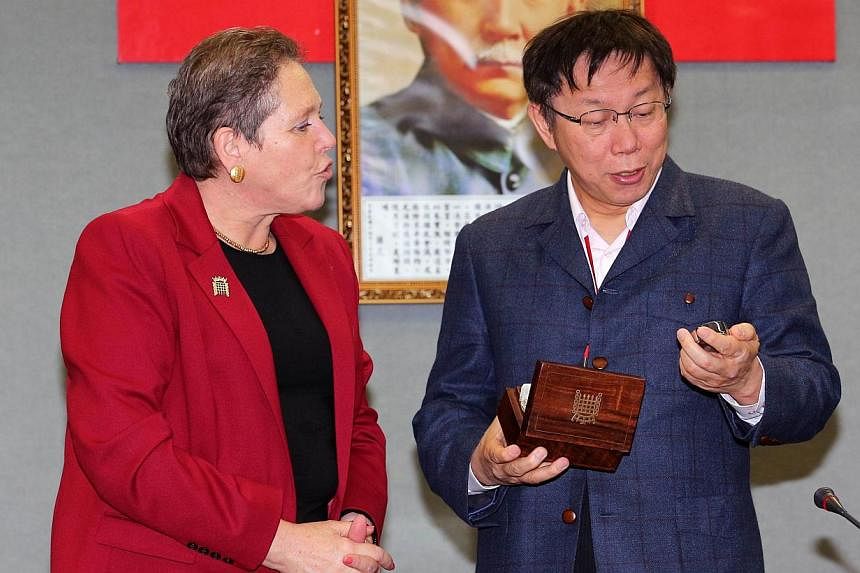Taipei mayor Ko Wen-je landed himself in hot water on Monday when he joked that the watch presented to him as a gift by British transport minister Baroness Susan Kramer could be sold to a scrap metal dealer.
While Kramer committed the cultural faux pas of presenting a timepiece to Ko, the mayor was lambasted in Taiwanese media for his "arrogant" remarks and lack of diplomatic decorum.
Gifts of clocks or watches in Chinese culture are deemed to be bad luck due to the similar Chinese pronunciation of "giving a clock" and "attending a funeral".
Here are some other gifts, however well-intended, that could put you in an awkward situation.
1. Even number of flowers
A gift generally frowned upon in Europe, particularly so in Ukraine, where an even number of flowers are brought to funerals.
Give an odd number instead.
2. Gifts with the number four
While tetraphobia - fear of the number four - is a superstition prevalent in East Asian and South-east Asian countries; the Japanese are extremely fearful of it. Apartments and parking lots skip the number.
Japanese firm Canon notably avoids the number in the serial and product numbers of its cameras.
3. Shoes
The Chinese word for shoes, "xie", sounds similar to another Chinese word that means "evil" or "bad luck". In Thailand, do not give shoes, slippers or socks as the feet are considered the least sacred part of the body.
4. Knives, scissors and other sharp objects
These symbolise the severing of a relationship and are a big no-no for diplomatic or business relations in many cultures.
5. Pears
Gifting fruit is common enough, but avoid pears. The Chinese word for pear, "li", can also mean "separate" or "part with".
6. Umbrellas
Like pears, the Chinese word for an umbrella is "san". This is another way of saying "to part".
7. Handkerchiefs
Handkerchiefs are commonly given out at the end of a funeral as a symbolic gesture to see off the dead.
Besides being a Chinese superstition, Venezuelans and Italians also avoid such gifts.
8. Mirrors
A mirror can be easily broken and thus avoided as a gift in China. Some believe it also attracts ghosts and evil spirits.
9. Wine
In France, bringing wine traditionally means that the host has not done a good job of entertaining his or her guests. As the country is famed for its wine, foreign wines are also not taken too kindly.
10. Silk garments
These should not be given to men in Saudi Arabia as they are regarded as an effeminate gift.


